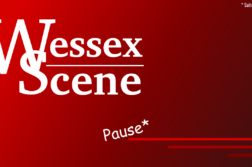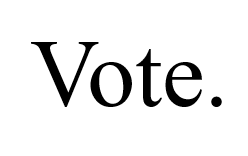Disclaimer: The views expressed within this article are entirely the author’s own and are not attributable to Wessex Scene as a whole.
The US had a vision of creating peace in Libya in an attempt to settle the growing civil unrest, which at this point had reached a critical level. The civil unrest was a war between army units loyal to Libyan Leader Gaddafi and anti-Gaddafi forces in Benghazi. The storming of the consulate happened on the 11th September 2012 when a mob of pro-Gaddafi terrorists unexpectedly launched a first attack on the US diplomatic base and a second on the CIA facility, all within a 24 hour period. These two attacks precipitated a long term humanitarian crisis in Libya as a consequence of the terrorist mob.
The year before the US Consulate was attacked, an uprising, supported by British, French and American airpower, overthrew Colonel Gaddafi, bringing his 42-year dictatorship to an end. The death of Gaddafi allowed violent militia gangs to raid his armouries, causing Benghazi to become one of the most hostile places in the world. Violent turf wars between gangs became rife, and the illegal arms trade thrived. Rape was a widespread phenomenon.
As the civil unrest reached a critical level, all foreign embassies and diplomatic outposts closed, except for the US diplomatic outpost. At the time, Ambassador Christopher Stevens was in charge of the outpost, although he would usually have been in Libya’s capital Tripoli. The only hope the Benghazi consulate had was in the hands of the Special Forces. But was this enough?
On the 11th September 2012, the US Consulate in Benghazi was stormed by an armed mob, who fired mortars and rockets during their assault, along with protracted gunfire and the eventual burning of the US diplomatic base. The attack was started by pro-Gaddafi forces as they wanted to force their corrupt attitudes over Benghazi’s population in an effort to advance their bid for power. The pro-Gaddafi advancement sought to revert the degree of peace the US diplomatic base created and instead further Benghazi’s already corrupt attitudes.
The attack on the US diplomatic base led to the death of Ambassador Christopher Stevens and 3 US personnel. Before Stevens died in the burning diplomatic base, a US surveillance drone flew overhead, relaying images of the area, informing Joint Chiefs of Staff and President Obama of the attack. A meeting was called to discuss the situation unfolding in Benghazi and how they were going to respond. But as far as the Special Forces were concerned, they were on their own. As no air support or military help was provided, it was now a matter of whether survival was possible.
After the initial attack on the US diplomatic base, the terrorists’ anger only grew as they launched another assault on a second US facility which hosted CIA agents. Again, the second attack mirrored the first with high levels of violence. Pro-Gaddafi forces suffered multiple losses compared to the US losing two former Navy SEALs (Tyrone Woods and Glen Doherty), acting as security contractors to CIA agents.
The greatest frustration during this episode was the lack of support from the US and allies. Ambassador Christopher Stevens and CIA agents raised numerous alerts in the hope of receiving air support to help overcome their assailants. None was given. They were left to fight alone. The only answer with logic and reasoning gives us a disappointing response: the US and their allies knew that if they went into Benghazi to help the Special Forces, there was a high chance they would not return home. This answer only creates questions of where the US and their allies loyalties lie, and the direction of their moral compasses.
It’s important to recognise diplomacy and intelligence missions are inherently risky and that all risk cannot be eliminated. However, it can be reduced through the US and their allies providing support. Especially considering that the diplomatic and CIA personnel work in these high risk locations to collect vital information necessary to prevent attacks being launched, therefore, keeping diplomats and CIA agents protected must be a priority.
Despite being deprived of help, the Special Forces and US personnel managed to defeat the Benghazi assault with their elite training and equipment. However, I want to emphasise how the Secret Soldiers understood the language and culture of the Arabs which is of greater importance during a civil war compared to academic intelligence held by CIA and intelligence agents. Here, I am not expressing the view that academic intelligence is of lesser worth, but without the social and communication skills of the Secret Soldiers, all US personnel would have undoubtedly died. This is because the Secret Soldiers were able to negotiate with anti-Gaddafi forces to their advantage, including: buying weaponry, understanding the unique ‘peace’ hand sign, and employing Arabs as translators.
By the end of 2012, Libya was facing a huge humanitarian crisis as a consequence of no US peace intervention among the pro-Gaddafi and anti-Gaddafi forces. Supplies of medicine, food and fuel were low as the people of Libya were affected by the past and present civil unrest. The civil war continues to this day, further destroying the country. If Libya does not receive intervention to end the conflict, their history, landscapes and culture will be lost in a pile of rubble rather than appreciated as a thing of beauty.



